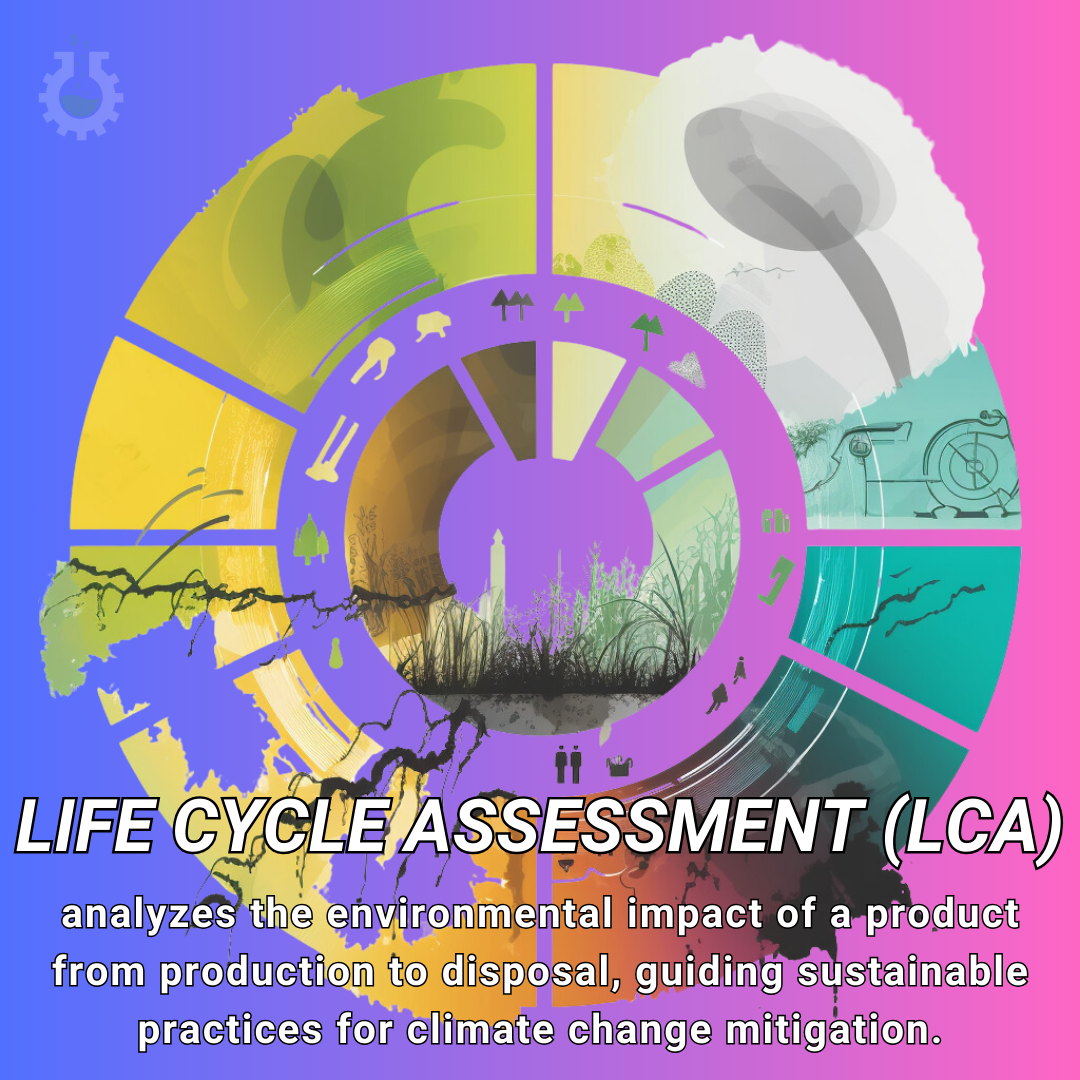February 22, 2024
Climate Change Poster Collection of the Day – Life Cycle Assessment (LCA)
Book a Demo
Today’s Climate Change Poster Collection highlights Life Cycle Assessment (LCA) a revolutionary method used to appraise the environmental impacts associated with the entire life cycle of a product or service. It’s a tool that provides a holistic view of the environmental consequences of a product, right from its inception to its eventual disposal. It’s instrumental in assessing the sustainability of a product, process, or service, making it an indispensable tool in the quest for a sustainable future.
The importance of LCA extends beyond mere environmental assessment. It can lead to enhanced product development, strategic planning, and informed policy-making. LCA provides factual and objective data, which can aid in effective sustainability communications. In an era where sustainability is paramount, this reliable data can help organizations make informed decisions that are not only beneficial to them but also to the environment.
While engaging with LCA, it is important to note that the complexity and detail of the assessment can vary. This variation is largely determined by the specific needs and goals of the assessment. Therefore, it is a flexible tool that can be tailored to suit different requirements, making it highly adaptable and versatile.
The process of LCA is typically divided into four key steps: Goal and Scope definition, Inventory Analysis, Impact Assessment, and Interpretation. These steps form a comprehensive framework that ensures a thorough and accurate assessment of a product’s life cycle. This careful structuring of the process further adds to the reliability and effectiveness of LCA.
In addition to LCA, there are other alternative life cycle approaches that are worth noting. The Cradle to Cradle approach, for instance, is one such method where all materials used in production are designed to be fully reusable in subsequent life cycles. This approach promotes the idea of continuous use of materials, thereby reducing waste.
The Circular Economy approach is another alternative that aims at ‘closing the loop’ by minimizing waste and making the most of resources. It’s a method that promotes resource efficiency and waste minimization, thereby making it a viable alternative to the traditional linear economy.
Methods like Life Cycle Assessment, Cradle to Cradle, and the Circular Economy approach offer valuable insights into the environmental impacts of a product or service. They provide a robust framework to assess sustainability, thereby facilitating informed decision-making and promoting environmental conservation.
Discover an inspiring collection of climate change poster.



